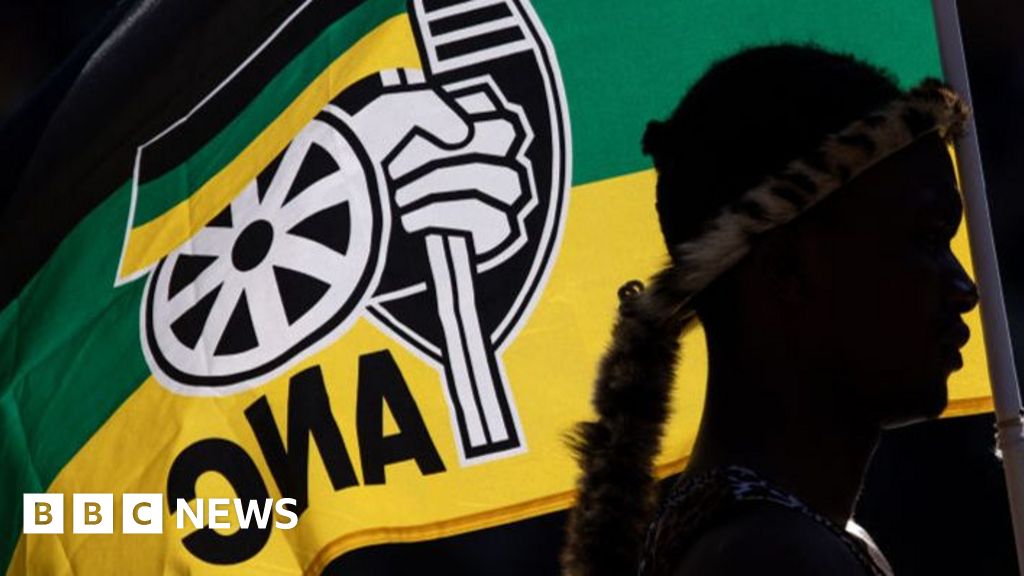The DA charges the affirmative action measures are inefficient, do not reward meritocracy and enrich ANC cronies.
Derek Hanekom, who was an ANC member of South Africa’s original national unity government, believes the differences are sometimes overemphasised.
“If they say that they really don’t like the legislation,” he told the BBC, “that doesn’t mean they don’t recognise the need for some kind of affirmative action, for some kind of redress – they do.”
“The parties are ready to make compromises and be flexible and at the end of the try to achieve consensus in decision-making.”
However difficult compromise may prove, the announcement of a coalition will bring a sense of relief to many investors and those in the private sector, who might hope for a period of stability.
They had been concerned by the radical left-wing policies of the ANC’s more natural allies, the EFF and MK.
Both of them advocate the nationalisation of land and property – with the aim of redistributing wealth to correct the racialised inequalities that remain embedded despite the ANC’s initial success at lifting millions of black people out of poverty.
The EFF rejected the idea of a national unity government that included the DA, and the MK rejects the constitution, so it did not meet the criteria for joining. Not to mention the personal animosity between Mr Zuma and the man who ousted him as president, Mr Ramaphosa.
EFF leader Julius Malema said the party planned to remain on the opposition benches, and would request key roles in oversight committees.
It’s possible either or both parties might make efforts to disrupt proceedings in the weeks and months ahead.
MK has made claims of election fraud despite failing to produce evidence, trying to block Friday’s parliamentary sitting through a legal effort thrown out by the Constitutional Court.
For ANC supporters, another question is whether the party of liberation is forced to soften its ideology to align with its new partners.
Addressing journalists on Thursday evening, Mr Mbalula repeatedly stressed that a coalition didn’t mean the ANC had changed. “No party is going to die,” he said, “the ANC is not going anywhere.”
But some believe sharing power poses a threat for the party – and could embolden its opponents outside the deal.
“If this grand coalition doesn’t work and dissatisfaction grows, it will only feed into the EFF and MK,” said Dr Pooe from Wits University. “But maybe the key question is whether we see a new ANC.”
Mr Hanekom agrees that South Africa’s seventh parliament could be crucial for his party. “It all depends on what happens in the next few years,” he says.
“This could be the party that people have been waiting for, the kind of leadership that people have been waiting for.
Despite his optimism, for the ANC veteran the stakes are high. “This is a second chance,” he says, “and we dare not fail. Otherwise it will be the end of the ANC. And for the sake our country, it dare not fail.”
“This could either be a reset or a slow path towards South Africa becoming a sad story,” Dr Pooe told the BBC.
“Their performance will show what it is. If it’s a good performance, it’s a good reset. If it doesn’t really do anything – it’s just us bumbling towards being a firmly established, struggling developing country.”
This article was originally published by a www.bbc.com . Read the Original article here. .


